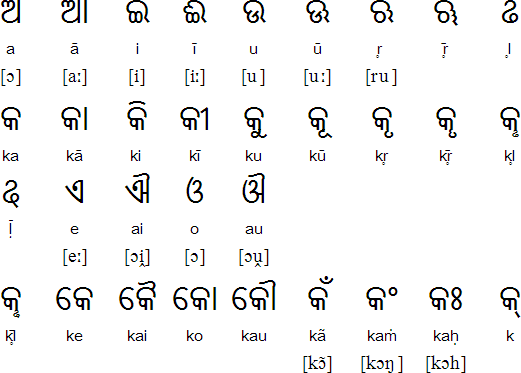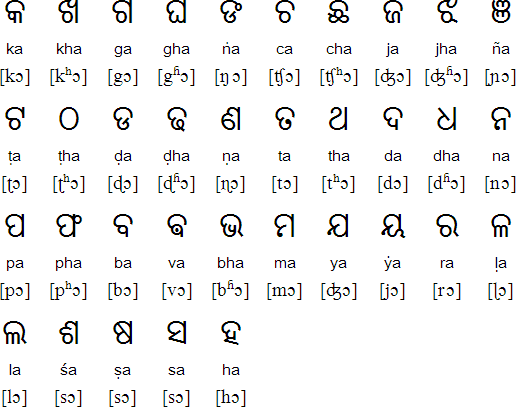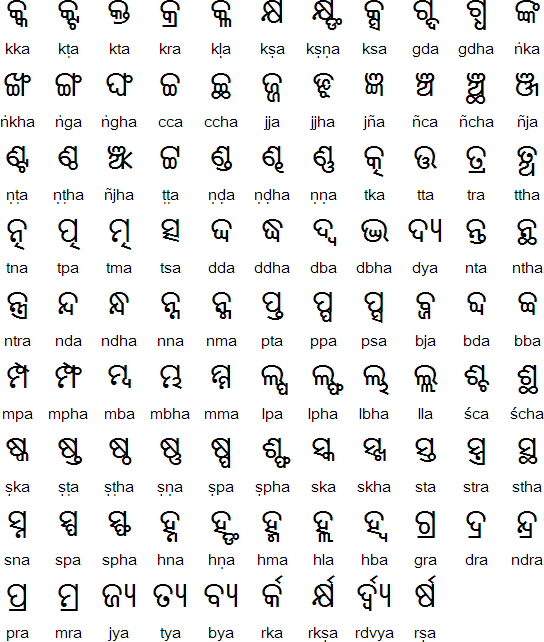Origin
The Oriya script developed from the Kalinga script, one of the many descendents of the Brahmi script of ancient India. The earliest known inscription in the Oriya language, in the Kalinga script, dates from 1051.The curved appearance of the Oriya script is a result of the practice of writing on palm leaves, which have a tendency to tear if you use too many straight lines.
Notable features
- Type of writing system: syllabic alphabet in which all consonants have an inherent vowel. Diacritics, which can appear above, below, before or after the consonant they belong to, are used to change the inherent vowel.
- When they appear the the beginning of a syllable, vowels are written as independent letters.
- When certain consonants occur together, special conjunct symbols are used which combine the essential parts of each letter.
- Direction of writing: left to right in horizontal lines.
Used to write:
Oriya (ଓଡ଼ିଆ), an Indo-Aryan language spoken by about 31 million people mainly in the Indian state of Orissa, and also in West Bengal, Jharkhand, and Gujarat. Oriya is closely related to Bengali and Assamese.Also used to write a number of the other languages spoken in Orissa and Sanskrit.
Oriya alphabet
Vowels and vowel diacritics with k

Consonants

Some conjunct consonants

Numerals

Sample text

Sabu manuṣẏa janmaukāḷaru svadhīna, ṣemānaṅkara marsẏāḍā o adhaikāra samāna, semānaṅaṭhāre prabã o bibeka naiha ṭachai, semāne paraspara paba brādahaba paiṣaṣa karai ṭhārpẏa jakairā ḍarakāra.
Translation
All human beings are born free and equal in dignity and rights. They are endowed with reason and conscience and should act towards one another in a spirit of brotherhood.(Article 1 of the Universal Declaration of Human Rights)
No comments:
Post a Comment
Note: Only a member of this blog may post a comment.